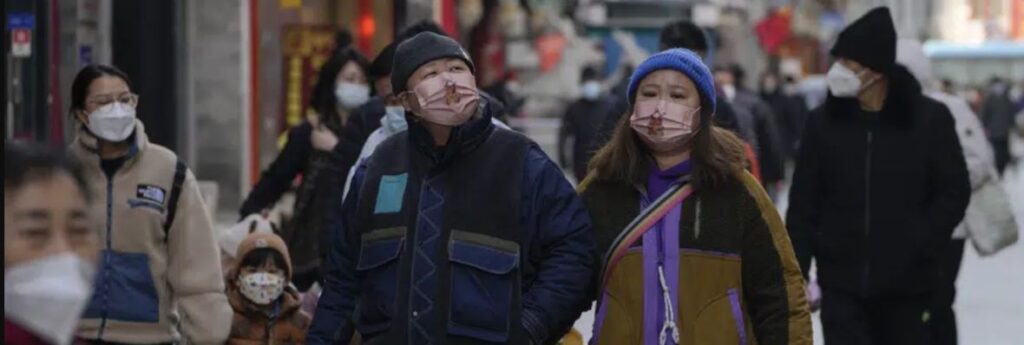The Chinese government has sharply criticized COVID-19 testing requirements imposed on passengers from China and threatened countermeasures against countries involved, among them Canada, the US, and several European nations.
“We believe that the entry restrictions adopted by some countries targeting China lack scientific basis, and some excessive practices are even more unacceptable,” Foreign Ministry spokesperson Mao Ning said at a daily briefing Tuesday.
“We are firmly opposed to attempts to manipulate the COVID measures for political purposes and will take countermeasures based on the principle of reciprocity,” she said. Mao did not specify what steps China might take.
The comments were China’s sharpest to date on the issue. Canada and Australia this week joined a growing list of countries requiring travellers from China to take a COVID-19 test prior to boarding their flight, as China battles a nationwide outbreak of the coronavirus after abruptly easing restrictions that were in place for much of the pandemic.
Other countries including the US, UK, India, Japan, and several European nations have announced tougher COVID-19 measures on travellers from China amid concerns over a lack of data on infections in China and fears of the possibility that new variants may emerge.
On Tuesday, the European Union and China moved closer to a political standoff over the crisis. An EU offer of help, including vaccine donations, was also as good as slapped down, with Beijing insisting the situation was “under control” and medical provisions “in adequate supply.”
In Canada, travellers from China, Hong Kong and Macau will need to provide a negative COVID-19 test result – PCR or antigen –to the airline, taken no more than two days before their departure, before boarding a flight to Canada. Or passengers who tested positive more than 10 days before their flight leaves, but not more than 90 days, can provide the airline with proof of their positive test instead.
The measure, which will apply regardless of vaccination status, will be in place for 30 days and will be reassessed as more data and evidence becomes available.
However, Kerry Bowman, assistant professor at the University of Toronto’s Temerty Faculty of Medicine, called the requirement “absolutely a political move, and not based on science at this point,” adding, “I don’t think it’s a great idea. I don’t think it makes us safer. On the surface of it, looks like governments are being proactive and sensitive and protecting their citizens, but it’s pretty clear that point of entry screening is not very effective at all. Often people can test positive days and weeks later.”
The UK will require that passengers from China take a COVID test before boarding the plane from Thursday. Transport Secretary Mark Harper said the requirement is for “collecting information” because Beijing isn’t sharing coronavirus data.
Chinese health officials said last week that they had submitted data to GISAID, a global platform for sharing coronavirus data.
The versions of the virus fueling infections in China “closely resemble” those that have been seen in different parts of the world between July and December, GISAID said Monday.
Dr. Gagandeep Kang, who studies viruses in the Christian Medical College of Vellore in India, said that the information from China, albeit limited, seemed to suggest that “the pattern was holding” and that there wasn’t any sign of a worrisome variant emerging.
Mao, the Chinese Foreign Ministry spokesperson, said that health authorities had recently held a video conference with the WHO to exchange views on the current COVID situation, medical treatment, vaccination, and other technical issues, and agreed to continue technical exchanges to help end the pandemic as soon as possible.
China, which for most of the pandemic adopted a “zero-COVID” strategy that imposed harsh restrictions aimed at stamping out the virus, abruptly eased those measures in December.
Chinese authorities previously said that from Jan. 8, overseas travellers would no longer need to quarantine upon arriving in China, paving the way for Chinese residents to travel.

